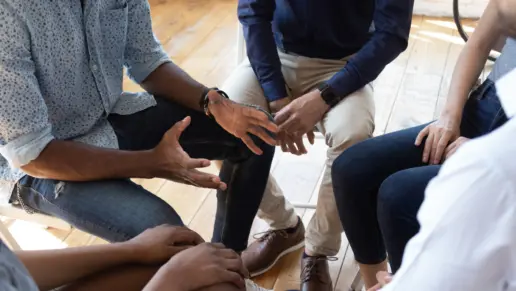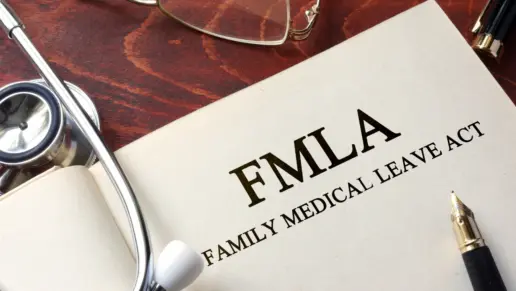Federal pausing of funds for mental health services in the United States could disrupt the functioning of essential programs that help millions of individuals battling psychiatric conditions and substance abuse disorders. Here are some programs that could suffer from the funding freezing.
Substance Abuse and Mental Health Services Administration (SAMHSA) Programs
The Substance Abuse and Mental Health Services Administration (SAMHSA) is the primary federal agency funding mental health treatment, prevention and recovery services in the U.S. The agency designs clinical practice guidelines, provides toolkits for healthcare professionals, creates educational resources for the public and offers treatment locator services.
SAMHSA maintains a robust data collection system for behavioral health statistics and awards grants for mental health interventions. A funding pause could have massive impacts as its services have a nationwide reach.
They include evidence based treatment programs, round the clock crisis support for mental health and substance use disorders, substance use prevention programs, youth mental health initiatives and specialized support for individuals experiencing homelessness who have behavioral health needs.
SAMHSA leads awareness campaigns throughout the year that promote mental health and wellness including Mental Health Awareness Month (May), National Recovery Month (September) and Suicide Prevention Month (September).
Community Mental Health Services Block Grant (MHBG)
The Community Mental Health Services Block Grant MHBG program provides federal funding to states for community based mental health treatment. MHBG focuses on adults with serious mental illness (SMI) and children with serious emotional disturbances (SED) that impact their daily functioning.
A pause in funds could disrupt new or existing initiatives delivering essential services like screening campaigns, outpatient treatment, emergency mental health services and day treatment programs.
Certified Community Behavioral Health Clinics (CCBHCs) Program
The Certified Community Behavioral Health Clinics (CCBHCs) Program is designed to expand access to integrated mental health and substance use disorder services.
With federal funding, they cover psychiatric care, crisis response, medication management and therapy for all individuals regardless of their financial situation or residence status.
Clinics deliver crisis intervention, outpatient mental health care, substance use treatment, psychiatric rehabilitation and primary care screening. They also coordinate care across healthcare providers and social services to guarantee a collaborative approach to mental healthcare delivery.
Project AWARE (Advancing Wellness and Resilience in Education)
Project AWARE (Advancing Wellness and Resiliency in Education) is a federal grant program that supports school based mental health programs by funding mental health awareness, early intervention and counseling services in schools.
SAMHSA manages the initiative and its ultimate goal is to build a sustainable school based mental health infrastructure through partnerships between state education agencies, local schools, tribal organizations and mental health providers.
The program offers mental health promotion, prevention programs, intervention services and resilience building activities for school aged youth in an environment that nurtures healthy social emotional development and prevents school violence.
Suicide Prevention Programs
The National Suicide Prevention Lifeline (988 Crisis Line) provides free, 24/7 support for mental health crises through a network of more than 200 state and local call centers. Individuals can access immediate support for substance use, economic difficulties, relationship issues, sexual identity, illness, abuse and loneliness in a judgment free and safe environment.
The federally supported Garrett Lee Smith (GLS) Youth Suicide Prevention Program provides state level grants for suicide prevention efforts among young people. They support initiatives to implement prevention and intervention strategies in educational institutions, juvenile justice systems, foster care and mental health programs.
The purpose of the program is to finance activities that help identify at risk youth, improve clinical assessment and treatment capabilities and provide follow up care.
Programs for Homeless Individuals with Mental Illness
Federal funding helps support many programs for individuals who are homeless and suffer from serious mental illnesses. Projects for Assistance in Transition from Homelessness (PATH) are federal programs that provide housing, case management and mental health services for at risk populations.
PATH operates across all states through local nonprofit organizations that deliver services such as street outreach, emergency housing assistance and mental health screenings.
Grants for the Benefit of Homeless Individuals (GBHI) is another initiative supported by federal resources offering outreach and mental health services for the homeless population.
Through GBHI, individuals and families experiencing homelessness can access evidence based treatment for substance use disorders or co-occurring mental health conditions.
Assisted Outpatient Treatment (AOT) Grants
Assisted Outpatient Treatment (AOT) grants support to court ordered community based outpatient mental health treatment programs for individuals with severe mental illness who could hurt themselves or others.
This federal program supplies resources to counties, cities, mental health systems and mental health courts to develop multi-disciplinary services such as treatment plans for medical, psychiatric and social needs and case management. They also provide protocols for referring individuals to other medical and social service providers.
Treatment for Individuals with Co-Occurring Disorders
SAMHSA funds programs for people with both mental health disorders and substance use disorders (dual diagnosis). Their federally backed initiatives seek to implement a “no wrong door” policy so every person receives appropriate screening and treatment referrals no matter how they enter the healthcare system.
Services like routine screening for concurrent psychiatric and substance abuse disorders, personalized treatment planning, medication management and ongoing care coordination between mental health and substance use providers could be affected by a funding pause.
National Institute of Mental Health (NIMH) Research and Programs
The National Institute of Mental Health (NIMH) funds scientific research and clinical trials for mental health disorders. The institute plays an active role in managing external and internal research programs by awarding more than 2,000 research grants nationwide and maintaining a team of 500 scientists in house.
Divisions within NIMH focus on research areas such as neuroscience, translational research, AIDS research, molecular biology studies, intervention research and data science. They also operate the NIH Clinical Center which is the largest clinical research hospital in the country.
As part of its mission, NIMH finances mental health research, conducts clinical trials, provides investigation training for scientists and disseminates findings to healthcare providers and the public. These activities could be impacted if federal funding stops.
Research Grants for Severe Mental Illness
The National Institute of Mental Health funds studies that focus on severe mental health conditions like schizophrenia, bipolar disorder, major depression and post traumatic stress disorder (PTSD). The institute sponsors studies on early intervention strategies and investigations aimed at preventing suicide.
Some of their programs like RAPID and FAST accelerate the development and testing of new medications, non-pharmacological treatments and novel therapeutic techniques. NIMH also creates tools to improve mental health diagnosis and clinical outcomes with an emphasis on treatment resistant conditions.
Early Psychosis Intervention Programs
The Early Psychosis Intervention Network (EPINET) is a research initiative supporting the early detection and treatment of schizophrenia and psychotic disorders.
EPINET operates in more than 100 clinics in 17 states and finances programs like the RAISE (Recovery After Initial Schizophrenia Episode) initiative that helps individuals rebuild their lives after a psychotic crisis to prevent future episodes and minimize the risk of long term disability.
Services that could be affected by a federal funding freeze include individualized psychotherapy, medication management, family education programs, supported employment and education coaching and case management guidance.
Brain Research Through Advancing Innovative Neurotechnologies (BRAIN) Initiative
The BRAIN Initiative (Brain Research Through Advancing Innovative Neurotechnologies) develops new neuroscience tools to better understand and treat mental health conditions. This federal program is committed to mapping the brain using cutting edge neurotechnology.
Priority research topics depending on federal resources include classifying brain cell types, creating detailed neural circuit diagrams, tracking large scale brain activity and developing interventional tools for studying brain behavior connections to produce new treatments for brain disorders.
Department of Veterans Affairs (VA) Mental Health Programs
The Department of Veterans Affairs (VA) provides mental health care for eligible veterans, active duty personnel and their families. The VA offers multiple essential services through its digital infrastructure which are supported by federal sponsorship.
These include My HealtheVet which is a healthcare management platform where veterans can refill prescriptions online, track deliveries and coordinate medical appointments.
Their platform is a solution for managing benefits, disability claims, pension applications, education assistance and housing support. VA also operates numerous programs that provide mental health support, treatment options for substance abuse, counseling services, burial and memorial benefits, life insurance programs and employment assistance for life after service.
A federal pause on VA funding could affect numerous veterans and their families.
VA Mental Health Services
VA’s mental health services program offers therapy, psychiatric care and medication management for veterans. Their programs are backed by federal funding and include inpatient and outpatient care for PTSD, depression, anxiety, psychosis, military sexual trauma and severe mental illnesses.
Veterans have access to extensive services no matter what their enrollment status or discharge type is. These services include individual and group counseling, medication management, substance abuse treatment, residential treatment programs, same day mental health services, telehealth appointments, employment initiatives and crisis intervention available 24/7.
VA Suicide Prevention Program
VA suicide prevention program provides round the clock crisis support through the Veterans Crisis Line (Dial 988 and then press 1), online chat and text messaging (838255).
The VA’s medical centers have dedicated Suicide Prevention Coordinators who connect veterans to clinical interventions and community based prevention support so they can access treatments for mental health conditions such as substance abuse, PTSD, depression, anxiety, and insomnia.
Each program offers suicide risk assessments, intervention services, couples therapy, parenting resources and empathic support for LGBTQ+ veterans.
PTSD Treatment and Support Programs
The VA funds specialized PTSD treatment clinics and operates almost 200 PTSD treatment programs across the United States that provide outpatient and residential care options. Access to their programs is available through VA medical centers, community based outpatient clinics and telehealth modalities. Learn more about veteran programs available.
Services include mental health and substance abuse assessments, medication management, residential programs, 24 hour crisis intervention services and tailored programs for military sexual trauma survivors.
Interventions employ evidence based treatments like Cognitive Processing Therapy (CPT) and Prolonged Exposure Therapy (PE) that can help veterans address trauma in a military friendly environment.
VA Homeless Mental Health Services
The VA runs multiple initiatives to support veterans experiencing or at risk of homelessness. Local VA Medical Centers have dedicated Homeless Coordinators in charge of connecting veterans to the assistance they need such as mental health treatment, housing assistance and job training.
VA centers also offer specialized programs for addressing issues that may affect homeless veterans like substance abuse treatments, concurrent mental health programs and comprehensive healthcare through the Health Care for Homeless Veterans (HCHV) Program.
The HCHV Program is available at more than 135 locations and it’s supported by economic resources provided by the federal government.
Centers for Medicare & Medicaid Services (CMS) Mental Health Coverage
The Centers for Medicare & Medicaid Services (CMS) manages healthcare coverage for more than 160 million Americans and provides federal funding for mental health services through Medicaid and Medicare.
CMS is responsible for establishing healthcare quality standards, implementing healthcare policies, processing insurance claims, designing service provider guidelines, maintaining national healthcare databases, preventing fraud, handling program enrollment and managing federal healthcare funding distribution.
The agency assigns resources to Medicare for seniors and disabled individuals, the Children’s Health Insurance Program (CHIP), Medicaid for low income beneficiaries and the Health Insurance Marketplace.
CMS works with healthcare providers, insurers and state agencies to improve healthcare quality and access in a cost effective way to strengthen the U.S. healthcare system for future generations of Americans so its economic support is essential.
People reviewing behavioral health benefits or trying to understand coverage for treatment can learn more about rehab options to see how insurance may help pay for mental health or substance use services.
Medicaid Mental Health Services
Medicaid Mental Health Services cover therapy, psychiatric visits and medication for low income individuals in the U.S. Medicaid is the largest investor of mental health and substance use disorder services in the country.
The organization transforms lives with mental health services, executes effective substance use disorder treatments and promotes interventions that benefit underserved communities. Services available include emergency department care, early intervention for first episode psychosis, substance abuse assessments and maternal depression evaluation.
Some states offer Medicaid expansion to cover peer support and community based care.
Medicare Mental Health Benefits
Medicare offers a wide portfolio of behavioral health and substance use treatment services. Their coverage includes inpatient and outpatient mental health services for seniors and disabled individuals, alcohol abuse screening with counseling sessions and specialized opioid treatment services with FDA approved medications.
People in need can access psychiatric evaluations, individual and group therapies, biofeedback treatments, electroconvulsive therapy (ECT) for depression and chemical aversion treatment. Services are available through in person visits and via remote access.
Children’s Health Insurance Program (CHIP)
The Children’s Health Insurance Program (CHIP) provides mental health coverage for children in low income families through state administered programs. The program encompasses all aspects of health with medical, dental and behavioral health services readily available.
Families can access well baby and well child visits, vaccinations, laboratory tests, Xrays and inpatient and outpatient hospital services. CHIP covers mental health and substance use disorder treatment including medication assisted treatment (MAT) and tobacco cessation programs executed with federal resources.
Federally Funded Mental Health Crisis and Suicide Prevention Initiatives
Several federally funded programs focus on crisis response and suicide prevention. Here are some of them.
National Suicide Prevention Lifeline (988)
The 988 Suicide & Crisis Lifeline provides crisis counseling via phone, text or chat any time of the day or night. Compassionate staff assist individuals experiencing mental health emergencies, substance use concerns and emotional difficulties.
English and Spanish speaking counselors provide immediate crisis de-escalation, emotional support and referrals if necessary. Conversations are confidential and free. Accommodations for deaf or hard of hearing individuals are available.
Crisis Intervention Team (CIT) Grants
The Crisis Intervention Team (CIT) grants support law enforcement training to handle mental health crises safely. The program is a community based initiative operating in more than 2,700 locations in the United States thanks to federal economic support.
Police departments connect through CIT with mental health providers, hospital emergency services and families to learn de-escalation techniques, crisis communication skills and mental health resource identification. This way, crisis affected individuals can receive treatment and avoid unnecessary incarceration and officers can concentrate on preventing crime.
Mobile Crisis Response Teams
These programs sponsor community based crisis teams that provide immediate support for individuals in distress. Mobile crisis response teams are composed of mental health specialists, social workers, nurses and peer support counselors who are trained to respond to emergencies in the most effective way possible for a person in need.
They deliver services like on site crisis intervention, mental health assessments and immediate stabilization support while coordinating post crisis care through referrals to healthcare providers, mental health programs and social service agencies.
Indian Health Service (IHS) Mental Health Programs
The Indian Health Service (IHS) supports mental health services for Native American and Alaska Native populations. Communities can access medical care, preventive health services and medical response coordination for infectious diseases (like MPOX and COVID 19) through their programs.
These initiatives are sponsored by federal funding and include services that support Native communities such as diabetes prevention programs, veterans services, substance abuse treatments, suicide prevention, maternal and child healthcare, online behavioral health and projects that promote environmental wellness.
The IHS operates in partnership with the Veterans Affairs Department and tribal organizations throughout the country. Their culturally sensitive services are delivered through a network of facilities on tribal lands, combining cutting edge technology with patient centered care.
Behavioral Health Integration Initiative
The Behavioral Health Integration Initiative funds tribal health centers to provide mental health and substance use services. The program integrates mental health services with primary care in American Indian and Alaska Native communities.
Local communities access services through activities counseling, alcohol and drug abuse services and referrals to specialized treatment programs. Medical care is also offered and includes culturally relevant guidance for combating chronic diseases that impact Native communities. They also offer nutrition guidance and diabetes care.
Suicide Prevention for Native Youth
The Indian Health Service’s Suicide Prevention Program supports culturally appropriate suicide prevention programs in tribal communities. The elevated suicide rates among young American Indians and Alaska Natives (AI/AN) devastate communities so funding harm reduction campaigns is essential.
This program delivers mental health services, substance abuse treatment, crisis response protocols, mental health counseling and community based prevention initiatives that respect traditional values and every person’s unique experiences.
Drug Free Communities (DFC) Support Program
The Drug Free Communities (DFC) Support Program is a federal initiative providing grants to more than 750 community organizations in the United States working on youth mental health and substance abuse prevention.
These groups work on modifying local environmental conditions and addressing community specific risk factors that predispose individuals to addiction to drugs or alcohol. Federal economic support strengthens organizations within the community so they can provide services that focus on minimizing opioid, methamphetamine and prescription medication misuse abuse.
Law Enforcement and Mental Health Programs
Some programs funded by the United States federal government focus on mental health and criminal justice reform. These programs are designed to help incarcerated individuals and those at risk of incarceration access the transformative healthcare services they need to improve their lives and address underlying conditions affecting their behavior.
These programs usually include life skills training and vocational services to facilitate community reintegration. Here are some examples.
Justice and Mental Health Collaboration Program (JMHCP)
The Justice and Mental Health Collaboration Program (JMHCP) is a federal initiative that supports mental health treatment instead of incarceration for individuals with mental illness. The program awards grants to bridge the criminal justice and mental health systems.
They deliver services like mental health courts, crisis intervention teams and specialized training for law enforcement and mental health providers. JMHCP finances mental health courts and jail diversion programs and emphasizes early interventions so individuals can access mental health help when they need it most.
Second Chance Act Reentry Program
The Second Chance Act (SCA) Reentry program helps formerly incarcerated individuals with mental health treatment and job training. The program assigns resources to multiple rehabilitation initiatives to reduce criminal reoffending among individuals released from correctional facilities.
Services include substance and mental health and substance abuse recovery programs, reentry services, systems reform initiatives and skills for individuals following release.
How to Access These Programs
If you or someone you love needs support for mental health challenges or substance abuse then several resources can help you.
You can visit the Find Treatment website to find local treatment from the U.S. Department of Health & Human Services. For crisis help call the Suicide and Crisis Lifeline at 988.
If you are a veteran who needs mental health support or guidance for substance abuse then call 1-800-273-8255 (Press 1).
To access Medicaid Mental Health Services please contact your state Medicaid office. Finally the SAMHSA Helpline is also available for treatment referrals at 1-800-662-HELP (4357).
If you want to explore treatment centers, compare program options or find providers that fit your needs, you can also learn more about rehab options to begin your search.
Addiction Centers That Treat Mental Health
Finding facilities near you…




